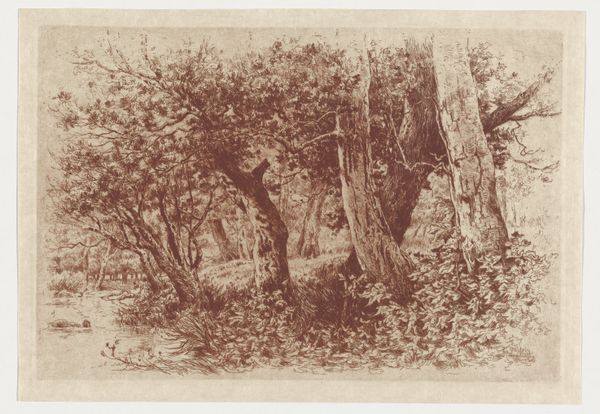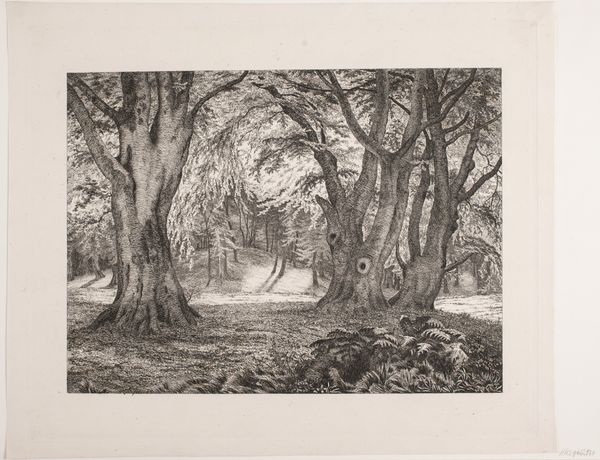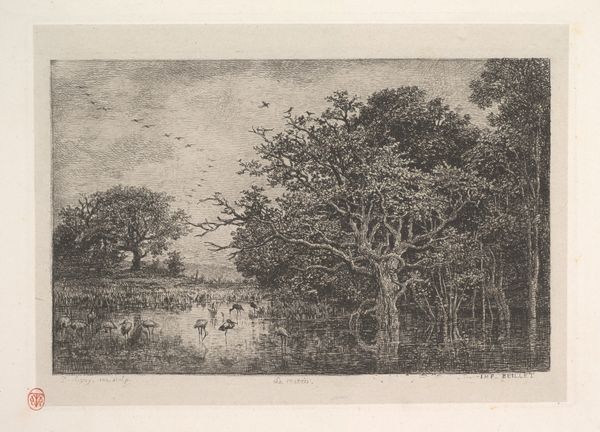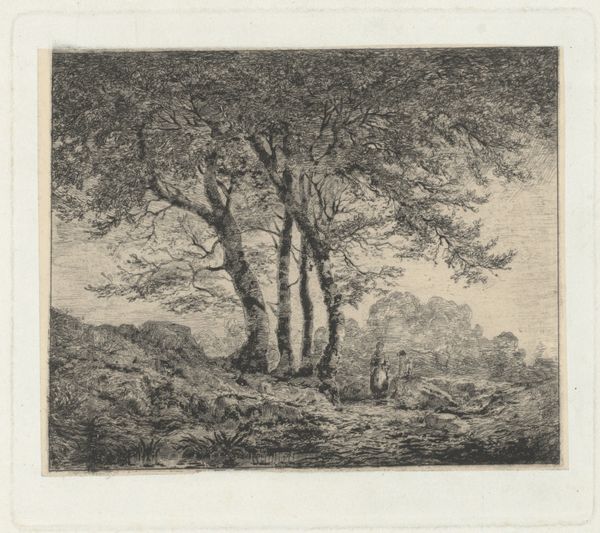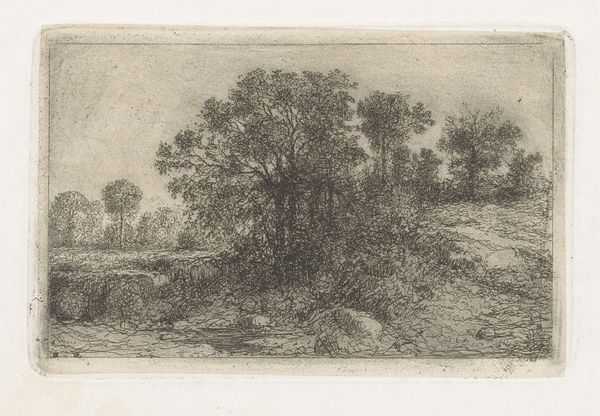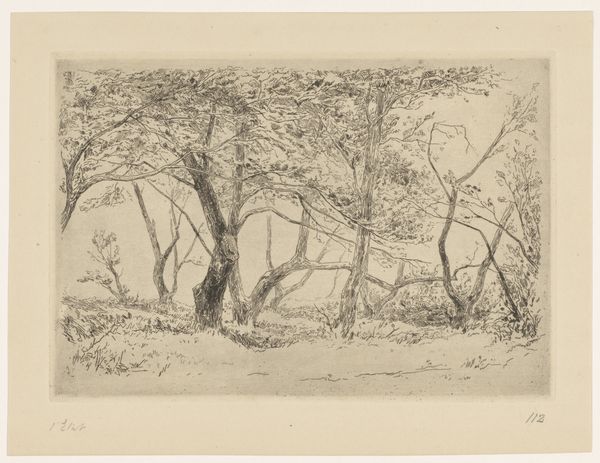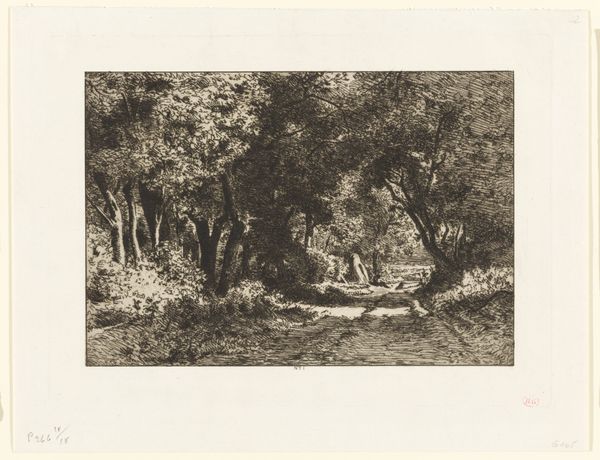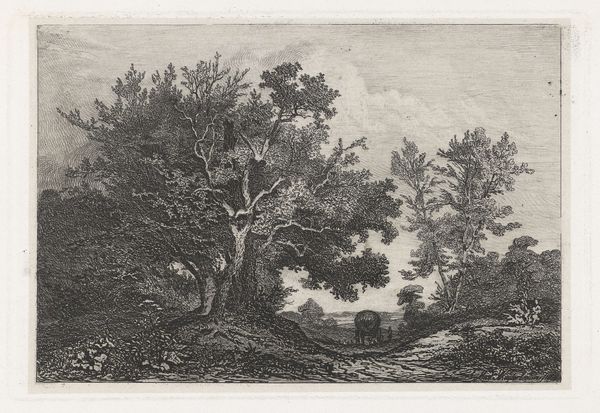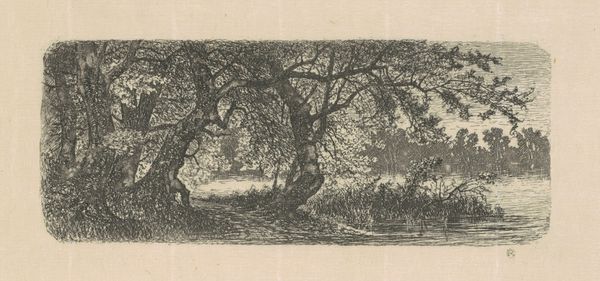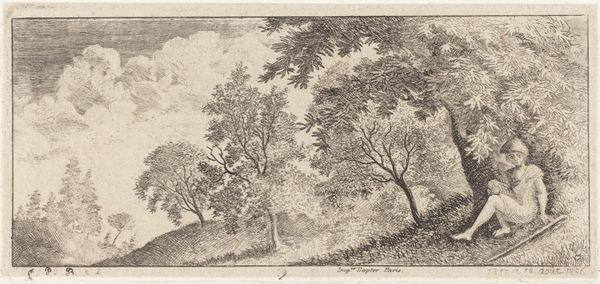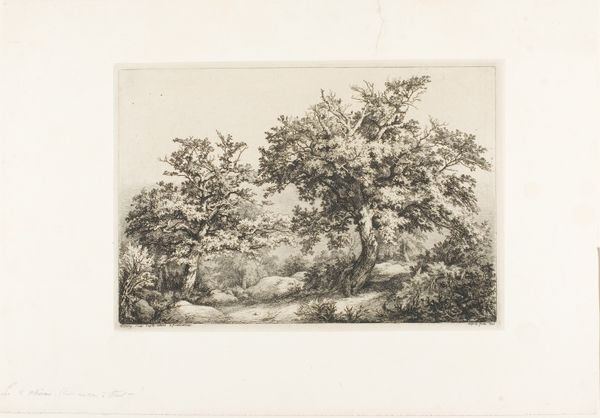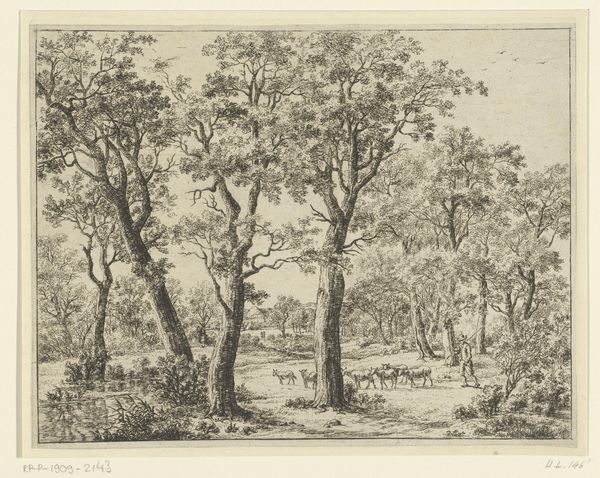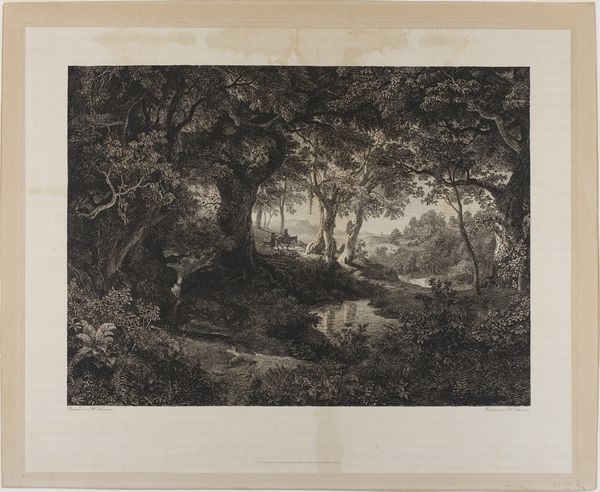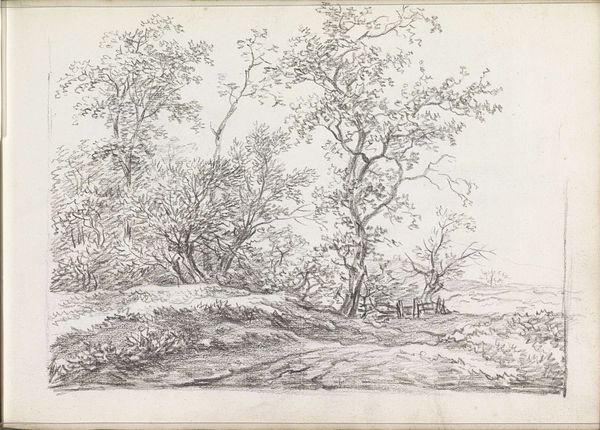
The Childhood of Claude Lorrain 1863
0:00
0:00
drawing, print, etching, paper
#
drawing
#
ink painting
# print
#
etching
#
landscape
#
charcoal drawing
#
paper
#
history-painting
#
watercolor
Dimensions: 399 × 576 mm (image.); 427 × 607 mm (chine); 446 × 625 mm (plate); 520 × 694 mm (secondary support)
Copyright: Public Domain
Editor: So, here we have "The Childhood of Claude Lorrain," a print from 1863 by Baron de Jean-Baptiste Heraclee Olivier Wismes, rendered in etching. I’m immediately drawn to the density of the foliage, it feels almost claustrophobic, yet serene at the same time. What do you see in this piece that I might be missing? Curator: The choice of subject is revealing. Why depict the childhood of a landscape painter within a dense landscape? It speaks to the Romantic idea of the artist’s inherent connection to nature. How might Lorrain's origins as the son of a pastry chef and his subsequent rise in Parisian circles play into this idealized depiction of his early environment? Editor: That's a perspective I hadn't considered! It does add another layer, almost a commentary on social mobility through art. It reminds me of similar artistic romanticizations. Curator: Exactly. And the etching technique itself – the way the lines create texture and depth – isn't just about portraying a realistic landscape. Think about the implications of Wismes, a Baron, choosing to represent Lorrain, who came from more humble origins, via printmaking. Is there an echo of democratizing art, making it more accessible? Editor: So, by recreating Lorrain’s potential beginnings through etching, the artist could be making a subtle comment on both class and the accessibility of art itself? Curator: Precisely! The act of choosing this medium becomes part of the statement. By examining these connections, we reveal a dialogue between history, social context and the very means of production of the image. Editor: Wow, I never would have looked at this artwork this way! It’s far more complex than just a simple landscape. Curator: Indeed. By acknowledging those layers we discover new questions and appreciate the conversations art invites us to engage with.
Comments
No comments
Be the first to comment and join the conversation on the ultimate creative platform.
